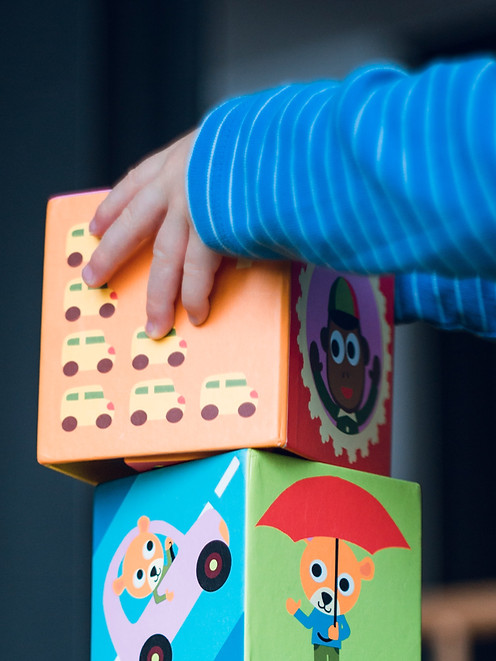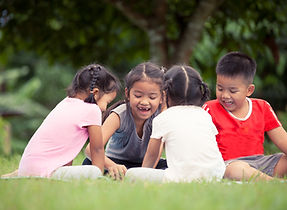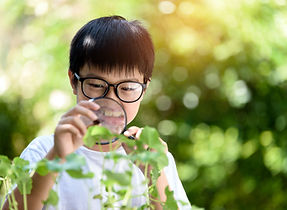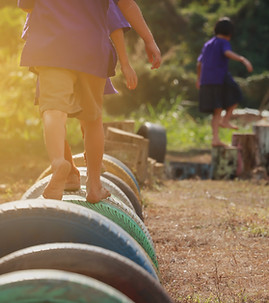



Forest school LIFE
If you think that a forest school sounds like a lot of fun, but also wonder what your child will get out of it, fret not! Read on to see what children get to experience in the Little Urban forest!
We also tell you more about the research evidence that has shown the significant impact of a forest school education and regular outdoor learning on children and their long-term development.
Typically, children at Little Urban Forest get their hands dirty and muddy while learning about how nature works. In the mornings, we will spend our time outdoors engaging in explorative play and semi-structured learning. Sessions continue to take place whether rain or shine.
When it is drizzling, we just put on our raincoats and boots and jump into the puddle of rainwater, or find out where the birds and tortoises seek shelter. The only way we go indoors is to escape a thunderstorm!

After a good outdoor play, we will have lunch at noon and move on to indoor learning time. We then run Mindfulness and Reflections sessions with our children and educators. This gives children an opportunity to cool down and express what they discovered that morning through drawing, painting, sculpting, story-telling, role-playing, music and many more!
For children ages 5 & 6, we incorporate an hour of academic learning such as language and numeracy in preparation to formal schooling.

Every week, we will participate in a wilderness survival skills programme conducted in-house by our qualified outdoor specialist. Children will engage in exciting survival activities such as shelter building, identifying dangerous plants and animals, camouflage, safe use of tools and many many more!

Once every two weeks, our children (ages 4 - 6) will travel on a bus to a local forest where serious forest school learning takes place. The outdoor excursion is facilitated by our education partner from Open Sky Unlimited, a professional forest and safety guide. When we say ‘serious’ we mean going all out where children get to climb trees, build dens, make mud pies, and put their survival knowledge to good use while having lots of fun! We encourage age-appropriate risk taking, such as tree climbing. We believe that in doing so, children become more aware of their own strengths and weaknesses, and learn how to overcome their fear.


Benefits
forest school education

In the generation of primary school readiness and standardised testing everywhere, we offer
opportunities to build a resilient and creative mindset. Being outdoors most of the time provides children the opportunity to solve problems on their own, be it social, mental or physical challenges.
Giving children space to investigate the science behind the natural world without adult interference and commanding instructions, without right or wrong answers, often unveils a greater depth of learning that cannot be accomplished in a conventional classroom setting. Children also become more creative in their problem-solving skills.

When children spend most of their time outdoors, naturally they will become more physically active and fit, as compared to a sedentary lifestyle in a classroom setting (O’Brien & Murray, 2007).
While engaging in outdoor and physical activities like climbing trees or rocks, children manoeuvre their bodies accordingly to stabilise themselves, and they become more aware of the strengths and limitations of their own bodies.

According to Burdette and Whitaker (2005), problem solving that occurs in outdoor play promotes higher level cognitive skills, meaning they learn to integrate attention with planning, organising, sequencing and decision making.
When a child is faced with challenges in the natural environment, for instance - not being able to reach for a fruit hanging down from a branch, the situation demands him to activate higher level cognitive thinking to work out a solution. Research has established that higher level cognitive thinking leads to long-term academic success.
.jpg)
Many outdoor activities require children to work and interact with one another, for instance building a natural fort with twigs and branches. Outdoor activities with minimal adult guidance encourage children to mediate with each other to achieve team tasks, learn how to cooperate and compromise, form new friendships and identify attitudes and abilities that are valued by their friends. Children also develop an increased awareness of other people’s personal space (O’Brien, 2009).
.jpg)
Forest school education encourages exploratory learning. When children are given the opportunity to explore nature, they often delve into it with a curious mind and therefore find things that spark their own interest (O’Brien, 2009).
Bredekamp et al. (1992) proposed that when children are involved in activities of their interest, they become more motivated to learn, become more curious and driven to find answers about the natural world. Through that, children develop better concentration skills from observing the environment and its natural processes.

SaFETY & RISK MANAGEMENT
.jpg)
Risk Management
Risk, the experience and management of it, is an inherent and an integral part of LUF forest school approach, and indeed of healthy child development. LUF educators endeavour to co-assess and co-manage risk with children. We believe this to be an essential skill for children to acquire and for adults to support. By embracing physical, emotional, and social risk taking we provide an environment for children where they feel in control, capable and trusted to make decisions for themselves.
Our educators implement dynamic risk assessments every day, based on need, as we visit various places on-site and off-site, and determine the suitability of the site for the goals of the lesson and safety of the children.
The following risk assessments are conducted:
• Activity or experience risk assessments
• Daily risk assessments

Child Safety
All our educators are trained in outdoor safety policy and procedures, basic wilderness first responds, first aid and outdoor risk assessment by our Safety and Risk Management Consultant, to ensure that the health and safety of children are met. These measures create an environment and culture that takes safety seriously and uses a proactive approach to Risk Management. Children and educators play an active role in personal and group safety. Our safety principles include:
• Constantly assessing risks as conditions change (dynamic risk assessment)
• Set up a safe space with boundaries and safety guidelines
• Observe children’s interactions with each other and with nature
• Spot children having difficulties during more challenging physical activities
• Gently guide children to other activities if required
• Head counts are carried out regularly throughout the day, especially before and after transitions to different sites
• In depth seasonal trail checks - looking for dangerous conditions
• Weather and environmental safety including, teaching children about hydration, application of sunscreen and insect repellent, changing of wet clothes

Forest Essentials
School Attire
Monday, Tuesday & Thursday: School Uniform
Wednesday: School dri-fit outdoor shirt & long trousers
Friday: Free & easy!
Required Gear List
Children in Forest School spend long hours in outdoor play whether rain or shine. For your child to fully enjoy their outdoor learning sessions, it is important that they are well prepared with a proper and comfortable attires.
Wellington / rubber boots
Knee length raincoat
**2 sets change of clothes
**2 pairs of socks
Water bottle with sling attached
Laundry bag for soiled clothes (provided upon registration)
Diapers (if necessary)
Sunscreen and mosquito repellent will be provided by LUF (kindly inform the team if you wish to bring your own)
Additional items to prepare for children enrolled in the Extended Hours:
**Bath towel
Pillow
Blanket
Shampoo and shower gel will be provided by LUF
(kindly inform the team if you wish to bring your own)
** Kindly keep clean apparels and bath towel in a zip lock bag.
contact us
Little Urban Forest (for 2 & 3 years old children)
66, Jalan Taman Bukit Desa, Taman Bukit Desa, 58100 Kuala Lumpur.
-
WhatsApp: 60143325466
-
Email: hello@littleurbanforest.com
Little Urban Forest Adventure (for 4-6 years old children)
36, Lorong Jugra, Taman Desa, 58100 Kuala Lumpur.
-
WhatsApp: 60146336601

© 2020 | Little urban forest



